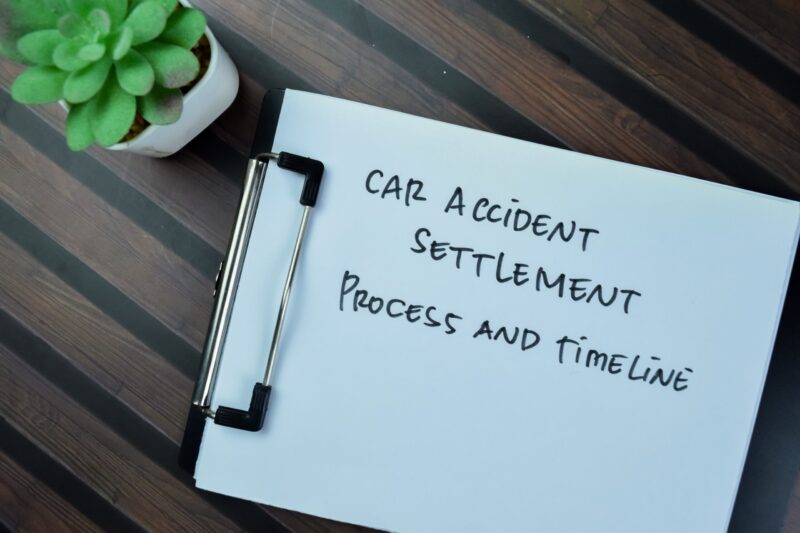If you suffer injuries due to another person’s negligence in Illinois, you have the right to recover compensation from the at-fault party. Depending on the circumstances surrounding your accident, you may be eligible to file a personal injury lawsuit or insurance claim against the negligent individual.
When filing an insurance claim, it is very important to navigate this process strategically and make informed decisions during each stage of your case. Accepting a settlement offer too early can prevent you from recovering the compensation you need to heal.
What Happens During the Settlement Process?
When you file a car insurance claim against an at-fault driver, the company will assign an adjuster to investigate your claim. The adjuster’s job is to determine how the crash occurred, whether you or the policyholder were at fault, and whether you are eligible for compensation. If the insurance company finds that the policyholder caused the accident, the adjuster will calculate a settlement and present an offer to you.
If you agree to accept the settlement offer, the adjuster will provide you with a release of liability that explains the terms and conditions of the settlement. Once you sign this release, your claim is over, and you cannot reopen the case or pursue a lawsuit against the at-fault driver.
Since insurance companies are responsible for paying for your damages, it is important to examine any settlement offers with a critical eye. The offer may be much lower than what you actually need to recover. A car accident lawyer in Chicago can help you evaluate your claim and calculate an estimated amount so that you can avoid an insufficient settlement, but if you sign the release, you cannot pursue further legal action in Illinois.
You may also reach a settlement after you file a lawsuit but before your case reaches trial. Like insurance settlements, you will forfeit your right to file a lawsuit once you sign the settlement release during pretrial negotiations.
When Can You Set Aside a Settlement?
There are situations where you may file a lawsuit after receiving a settlement offer. However, these exceptions typically arise if you and your attorney disagree on the terms of the release waiver.
- If you received a settlement offer before you filed a lawsuit, you can choose to renegotiate the settlement before signing the release. If the insurance company refuses to renegotiate, you can proceed with a lawsuit.
- If you reach a settlement after you file a lawsuit and before you reach trial, your attorney will negotiate with the defense lawyer to reach a beneficial release. If you reach an agreement, you can submit the release to the court and allow the judge to decide how to proceed. The judge may order you to sign the release, require the attorneys to change the release, or cancel the settlement agreement and proceed to trial.
Hire an Attorney for Your Personal Injury Case
The settlement process can be risky for personal injury victims. In these situations, you need an attorney who can advocate for your best interests, negotiate with the insurance company or defense attorney, and evaluate any settlement offers you receive so that you do not find yourself in a difficult situation.
Hiring a Chicago personal injury lawyer can provide several benefits to your case, including access to expert witnesses who can provide testimony on your behalf and the ability to calculate the full extent of your damages. As soon as possible after your accident, contact an attorney to discuss your case and legal options.







